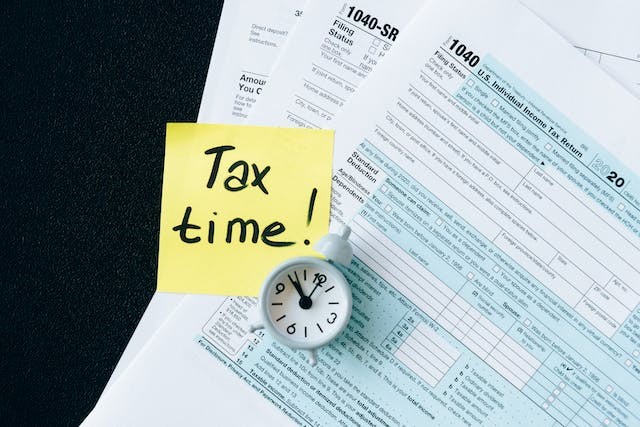
Filing taxes late for small businesses can lead to significant penalties, potentially as high as 5% per month. To meet the tax deadline promptly each year, small business owners must maintain organization throughout the year and start arranging their tax documents well in advance.
This approach, a crucial tip for small businesses taxes, accelerates the process when it's time to file and ensures deadlines are easily met, safeguarding the business from unnecessary financial strain.
Small businesses taxes Overview
Small business taxes must be filed differently by entrepreneurs than individual income taxes. The ability of business proprietors to jointly submit their personal and corporate taxes is contingent upon the legal structure of their organization.
The Internal Revenue Service (IRS) provides self-employed individuals and business proprietors with comprehensive tax information. Businesses' tax obligations vary according to their legal structure, annual revenue, and workforce size. Business proprietors may contact the IRS and their state or local tax authorities for additional information.
Companies can designate their accounting period when they first file taxes, known as a tax year by the IRS.
There are three types: the Calendar Tax Year, which spans from January 1 to December 31; the Fiscal Tax Year, covering 12 consecutive months but ending on the last day of any month other than December; and the Short Tax Year, which applies to periods less than 12 months, often occurring when a company starts mid-year or switches between calendar and fiscal tax years.
Tips for Small Business Taxes

Operating a business already presents numerous challenges, and the added complexity of annual tax filing can be overwhelming. According to experts, the solution is maintaining year-round collaboration with an accountant, not just during tax preparation.
John Blake, a CPA from Hamilton, N.J., emphasizes that making financial decisions without the guidance of an accountant or financial adviser can be risky and ultimately more costly.
Here are some recommended tips for small businesses in tax preparation, accounting, and working with financial professionals.
1. Hire a suitable accountant
Chandra Bhansali, co-founder and CEO of Accountants World, recommends having an accountant manage income and spending throughout the year to avoid cash flow issues and evaluate gross and net earnings.
Work with an accountant from day one of starting the business, not just during tax season. He claims that "most small businesses don't understand the importance of accounting for their survival and growth.
2. Claim all IRS-reported Income
The IRS receives copies of the owner's 1099-MISC papers to verify their income. Blake advises checking your IRS income report against their 1099s. Not doing so sets off an IRS red alert. Report income even if a client doesn't send a 1099. State taxes follow the same rules, he says.
3. Stay Organized Throughout the Year
David Frisch, Frisch Financial Group, Inc., says that small business owners find tax returns stressful. Evening and weekend data collection can be incomplete. Stay organized year-round. It saves time and stress. Keep taxes in a separate file, accurately categorize income and expenses on the computer or ledger, and then print it out.
4. Keep accurate revenue and expense records
According to Jared Weitz from United Capital Source, maintaining daily or weekly revenue and cost records will prevent a massive year-end pileup. Business software like QuickBooks can streamline operations. It connects to bank and salary statements and other documents.
This streamlines tax filing and informs the small business owner of their business's cash flow and net income/loss.
5. Seek Expert's advise
Anderson Business Advisors, LLC, David Gass, mentioned that small business entrepreneurs demand complete control and knowledge. The specialists should help them pay the IRS the most minor amount regarding taxes. Working with a CPA and running calculations to determine the optimum business structure methods is even more critical with the new tax code amendments. Anderson Business Advisors, LLC, David Gass















